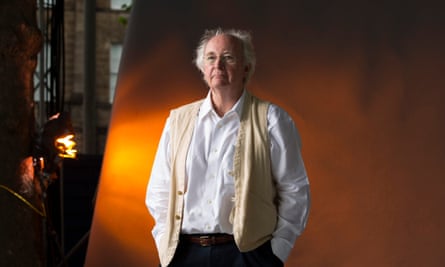
The novelist has joined fellow children’s writers Michael Morpurgo and Julia Donaldson in a plea to ministers for action
Philip Pullman, the author of the His Dark Materials trilogy, has joined fellow celebrated British writers Michael Morpurgo and Julia Donaldson this weekend in calling on government to legislate immediately to ensure all schools in Britain have libraries.
“The school library is absolutely essential at every level of education, and it needs legal protection and status,” said Pullman. “It is too easy to think that books and reading for pleasure are not essential, whereas nothing is more certain to improve children’s ability – and desire – to read richly and well.
“It’s also been too easy for some school heads to downgrade the school library into some sort of ‘information centre’, with the focus on computers and technology rather than books.”
Earlier this month former children’s laureate Donaldson, the author of The Gruffalo and many other popular stories for youngsters, made this campaign a key element in her BBC Radio 4 Analysis programme about the reading crisis among British children. If not enforced by law, the provision of a school library, she said, should at least now become part of an Ofsted evaluation.
Data produced last year revealed a falling number of secondary schools with libraries, while 14% of primary schools indicated having no library.

Donaldson went on to point out that while British prisons are legally required to have a library, some of the next generation of schoolchildren are going without.
Her words were echoed last week by Morpurgo, another former children’s laureate and the author of War Horse. He called for a new law when he was interviewed on Radio 4 about a related campaign to encourage parents and carers to lay the groundwork by reading stories to their children at bedtime. The writer emphasised that reading was not just important for improving academic attainment, but for its own sake.
The joint plea by the celebrated authors comes as new Manchester University research is published this weekend showing that reading comics and graphic novels can be a crucial introduction to books.
One of Pullman’s series of comics, The Phoenix, was given to north Manchester schoolchildren as part of a two-year project funded by Comic Art Europe, a pilot scheme bringing together four European organisations representing different elements of the comic book sector, and commissioned by the Lakes International Comic arts festival in Bowness-on-Windermere, Cumbria.
The festival’s research found “the number of children who listed reading as one of their favourite leisure activities doubled in the intervention group, while it reduced in popularity among the comparison group”.
Researchers worked with year 3 and year 4 pupils at north Manchester’s Abraham Moss community school, which has a large proportion of pupils from ethnic minority backgrounds and a higher than average number of economically disadvantaged students.
Last September a National Literacy Trust report revealed that more than 56% of eight to 18-year-olds do not enjoy reading in their free time – a record low. And levels of reading enjoyment were weakest for children from disadvantaged backgrounds. This is despite recent evidence that an interest in books is a significant determinant of future achievements and salary levels.
Pullman said that he had kept an American poetry anthology “out of the hands of the elderly librarian at my secondary school in Harlech, north Wales, for example, because I worried that she might be damaged by Allen Ginsberg’s Howl”.
Pullman added that he visited Michael Gove when he was education secretary to make the argument for action. “He thanked me courteously and took no notice whatsoever,” Pullman said.
“But the library should be the heart, the soul, the mind, the source, the spring, the gold-bearing seam, the engine room, the treasure chamber, the priceless inheritance, the joy and the pride of the school. Every school.”

No comments:
Post a Comment